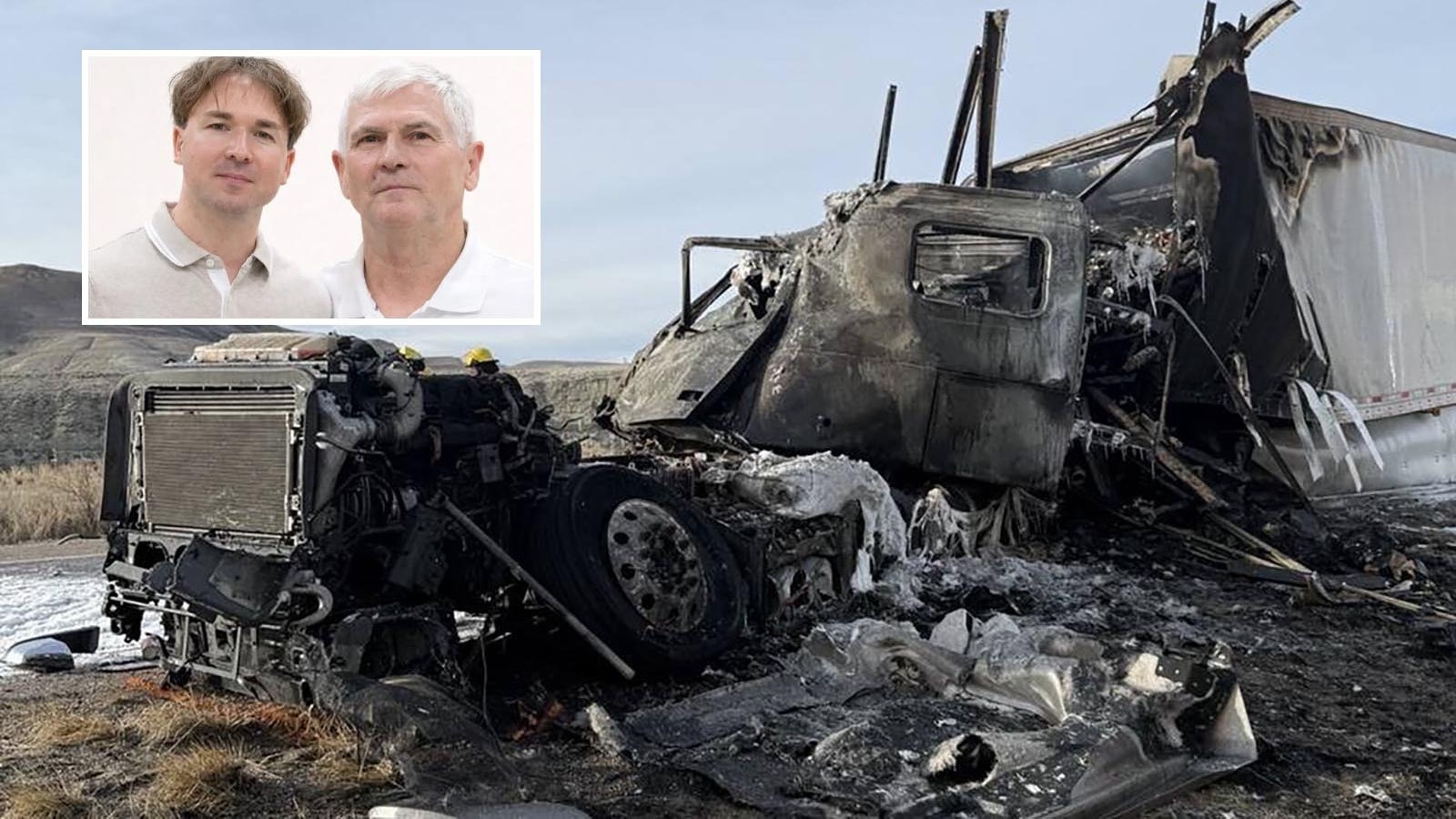A lightning strike killed two elk hunters who went missing Sept. 11 in southern Colorado were found dead on Thursday, the coroner who investigated the case confirmed Monday afternoon.
Lightning might have stuck a tree that Andrew Porter of Asheville, North Carolina, and Ian Stasko of Salt Lake City, Utah, both 25, were standing under, Conejos County, Colorado Coroner Richard Martin told Cowboy State Daily.
The bodies were found fully clothed and didn’t show any outward signs of trauma, Martin said.
He said determining the cause of death was “a pretty tough case,” because in most instances of fatal lightning strikes, there are entry and/or exit wounds from a massive bolt of electricity.
The tree that Porter and Stasko were apparently standing under also didn’t show any signs of a strike.
Martin said there’s no way of knowing for certain what transpired, but he surmised that the electricity from the bolt that struck the tree likely traveled through the tree, and into the ground.
And then the conductivity through the ground is probably what killed the two men, he said.
It’s likely that the fatal effect was that “all electrical functions” in their bodies were stopped instantly by the massive jolt coming from the lightning, he said.
Lightning A Serious Hazard
Lightning can be extremely dangerous, meteorologist Jan Curtis told Cowboy State Daily.
It doesn’t have to strike people directly to cause serious injury of death, he said.
If the ground is wet, in can conduct electricity from a nearby strike, said Curtis, who spent his career did meteorology and climatology for the U.S. Navy, the Geophysical Institute at the University of Alaska and the Natural Resources Conservation Service. He also was the Wyoming State Climatologist from 2001 to 2005.
Meteorologist Don Day of Cheyenne agreed that lightning should be taken seriously.
“Personally I think lightning danger is something people don't think enough about, especially the amount of thunderstorms we get in this region and how people like to be outside; mountains, lakes, golfing, etc.,” he said.
“Lightning does not follow many rules, you should have deep respect for its dangers and its unpredictability,” he added.
“While the odds of being struck by lightning is 1 in 1,222,000, the USA averages 43 deaths per year from lightning strikes. The four states with the most lightning related fatalities are Florida, Texas, Colorado, North Carolina and Alabama. A lot of these happen on golf courses,” Day said.
Storms were reported last week in the region of the Rio Grande National Forest in Colorado where Porter and Stasko were hunting.
‘Pray For Their Families’
Like countless other hunters throughout the region, Olin Machen of Cody has been following Porter and Stasko’s story closely.
He said he was saddened to learn about the official cause of their deaths. He urged hunters to be mindful about lightning, and to show respect and compassion for the men’s families.
“In general, lightning safety for hunters would be to stay below tree line when afternoon storms pop up. Drop down off the tops of ridges even if it’s only a short distance, stay away from big rock formations that lightning may travel horizontally across, and don’t have the metallic objects like a rifle or trekking poles on your body,” he said.
“For me, and as a result of this tragedy, I’ll add, stay as far away from my hunting buddy, but still in view, as possible. Perhaps we can all take a lesson away from this and take a moment to pray for their families,” he said.
Mark Heinz can be reached at mark@cowboystatedaily.com.





